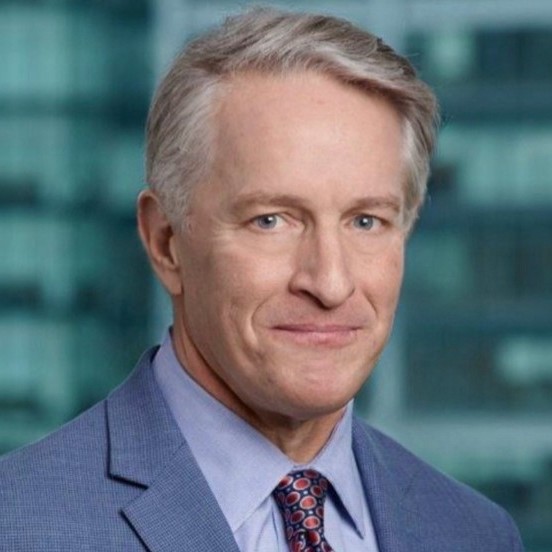Family Office
The Family Office Trap: When Doing Too Much Does Harm

Family offices are sometimes in danger of making the mistake of "overserving" their clients, so the authors of this article argue.
The following article, by William Parizeau, CEO of the Matthew Pritzker Company, and Jennifer Richardson the founder of Richardson Leadership Solutions, reflects on their view that many family offices aren’t focused on the important issues, ironically by doing – or trying to do – too much. (More on the writers below.)

William Parizeau

Jennifer Richardson
The editors are pleased to share this content, and we hope it starts conversations. Please get involved and if you wish to comment and suggest ideas, email us at tom.burroughes@wealthbriefing.com and amanda.cheesley@clearviewpublishing.com
We’ve come to an uncomfortable conclusion: many family offices may be doing too much. Not too much in terms of hours worked or tasks managed, but too much for the family, and not enough with them, or, more importantly, in support of them.
This is the paradox we’re beginning to wrestle with: the more capable and service-oriented a family office becomes, the more it risks shielding family members from the very life experiences, struggles, and responsibilities that allow human beings and families to develop grit and grow. We may be preserving assets with great precision, generating impressive investment returns, but are we impeding the family’s capacity for independence and self-leadership?
Too often, we prioritize precision over purpose. Before systems, structures, or services, families need a North Star, a shared understanding of why the wealth exists, what kind of family they want to be, and what future they want to shape. Without this compass, even the most capable office risks navigating in circles.
We recognize that every family is different, and so is every family office. Some families truly want a high-service experience. Others are ready to evolve. This piece is therefore an invitation to reflect, not a prescription. It is not about right or wrong, but about being aligned with the family's values, goals, and readiness to grow.
The hidden cost of doing too much
Consider a few familiar examples:
-- We manage adult children’s budgets instead of helping
them build their own financial dashboards;
-- We pay their bills, even well into adulthood, breaking
the connection between spending and accountability;
-- We negotiate real estate leases or car purchases,
bypassing the learning that comes from doing hard
things;
-- We curate their philanthropy to align with family values
but often sideline their personal passions;
-- We absorb emotional labor, smoothing over conflict that
could otherwise spark maturity; and
-- We gatekeep complexity such as investment memos, legal
strategy, and tax structures when we should be scaffolding
understanding.
Each of these services may feel helpful in isolation. But over time, are they creating a culture of dependency? The rising generation becomes “served” rather than activated. They may sit on committees but rarely ask hard questions. They engage in philanthropy but often at a polite remove. At the extreme, they grow alienated from the sources and responsibilities of their own wealth.
When stewardship becomes concierge
In theory, a family office is a tool for stewardship. In
practice, it too often becomes a concierge service. This isn’t
due to laziness or ill intent; it’s usually the natural
consequence of success. We professionals pride ourselves on
discretion, responsiveness, and anticipating needs before they
arise. But that anticipatory posture, while operationally
admirable, might it become spiritually corrosive?
We rarely pause to ask the braver questions: Why are we doing this? What is this in service of? These are not just logistical queries; they are philosophical and moral ones. And many family office professionals, for all their technical mastery, aren’t trained or encouraged to facilitate these deeper conversations.
Let’s call this dynamic the Family Office Trap: the idea that in trying to help, we may be quietly harming. We translate complexity into simplified briefs. We deliver continuity but suppress adaptation. We say “yes” when perhaps we should ask “can we help you figure it out?”
The modern family office may be a marvel of institutional design. But it’s very competence can become a liability if it disconnects the family from the work and the grit that comes with ownership.
From service provider to capacity builder
To be clear, we’re not advocating dismantling the family office.
Nor are we suggesting that families should manage significant
wealth without expert guidance. What we are proposing is a shift
in purpose: from doing for to building up.
What if the family office saw its ultimate job not as solving problems, but as preparing the family to solve them? What if we rebalanced our portfolios, not just financial, but educational and relational to focus on developing self-sufficient family leaders?
This shift begins not with structure, but with story. Families need to articulate their purpose before they delegate tasks. The family's shared narrative, which includes the reason why its wealth exists, and what legacy they seek to live, not just leave, becomes the framework for decisions. Without that clarity, even the best-designed systems become brittle.
Ask questions that anchor purpose: Why does this wealth exist? What values do we want to amplify? What kind of family do we want to be across generations? What impact do we want to have in the world?
That shift requires courage. It may mean questioning requests we’ve always said yes to. It may mean adding back ambiguity and friction. It may even mean engineering our own obsolescence, at least in some areas. But that’s precisely the kind of leadership the next generation needs.
Examples of empowered design
Some forward-looking families are already moving in this
direction. One we know recently decentralized investment
decision-making, allowing each family branch to manage its own
capital pool. The early results were messy but instructive. Over
time, each branch became more fluent in capital allocation and
accountability.
These lessons didn’t come from a playbook or seminar. They came from making mistakes. We forget that discomfort is a teacher. When family members are allowed to try, fail, reflect, and try again, they don’t just build skills. They build identity.
Another family restructured its philanthropic arm to be led entirely by the third generation, with older members and advisors serving strictly as coaches. The result wasn’t just more meaningful engagement; it was a genuine sense of ownership.
These families aren’t downsizing their offices because they lack resources. They’re doing it because they want the family to grow in capability, not just in net worth. And they recognize that capability only comes through engagement, and sometimes, discomfort.
Avoiding the trap: A new role for office
leaders
This reorientation also requires a change in identity for family
office professionals. We’re no longer just managers of
complexity. We must become, or facilitate others to become,
educators, coaches, and cultural translators.
That also means learning to be brave. We must ask the tough questions: Why? When? What’s at stake if we do this? What are we avoiding? Many family office executives have been trained on technical skills and have learned to minimize friction, but growth often hides inside it.
We need to learn how to step back, how to let families make mistakes, and how to provide structure without control.
Ways to Begin the Shift:
-- Offer next-gen opt-in paths for learning and
participation, not mandates;
-- Reframe services as temporary supports, not permanent
fixtures;
-- Ask permission to coach instead of solving: "Would it
help if we figured this out together?"
-- Introduce "experiments" rather than sweeping changes, small
pilot efforts to build confidence and capability; and
-- Normalize discomfort as part of growth: "This might feel
new, but that does not mean it is wrong."
This might mean:
-- Refusing to hire an executive assistant for a rising-gen
member who hasn’t yet managed their own calendar;
-- Putting thoughtful limits on and applying a “loan
officer” discipline to intergenerational subsidies;
-- Embedding financial literacy and decision-making labs
into family retreats;
-- Hosting skill-building sessions focused not on legacy,
but on career planning, negotiation, governance, or resilience;
and
-- Making clear that certain services are transitional, not
permanent.
We might even need to re-examine how automation and technology, including AI, are shaping this landscape. If too much is done automatically, or if decisions are pre-digested or executed without involvement, families lose the learning that comes from doing the work themselves. Tools should augment growth, not replace it.
The goal is not austerity. It’s intentionality. It is recognizing that families thrive not when everything is done for them, but when they are challenged and supported to rise.
The call forward
To our fellow family office leaders: we invite you to pause and
ask what legacy your work is truly leaving.
Are we supporting a structure that will one day disappear because the family has outgrown it? Or are we building a dependency so entrenched that the family cannot thrive without us?
We have the privilege and the responsibility for helping families become their fullest, freest selves.
But that growth only happens when they are connected to purpose, and when we have the courage to ask the questions that matter most. The families who thrive are those who name their North Star, engage with discomfort, and embrace complexity rather than avoid it. As professionals, perhaps we need to do less and empower more.
Let’s not rob them of that by overserving. Let’s reclaim a more noble role: less as protectors of wealth, and more as cultivators of wisdom.
A note of thanks
We would be remiss not to acknowledge the influence of Kristin
Keffeler and her book The Myth of the Silver Spoon,
which powerfully explores the idea of “privilege-induced
developmental delay.” Kristin’s insights have inspired us to look
more closely at the unintended consequences of over-functioning
family offices, and to reimagine a new kind of office that
emphasizes empowerment over protection.
We’re grateful for the clarity and courage her work brings to this conversation.
About the authors
William Parizeau
He is the CEO of the Matthew Pritzker Company, LLC, a
Chicago-based Single Family Office. He has been active in the
family office space for over 15 years. He works at the
intersection of legal strategy, operational leadership, and
multigenerational wealth management for ultra-high net worth
families. His background spans trusts and estates law, family
office services, and hands-on leadership of single family
offices. He has advised families on complex estate planning and
structuring, led business units delivering bespoke solutions to
UHNW clients, and overseen all aspects of family office
operations – from investments and governance to
succession planning and next-gen engagement.
Jennifer Richardson
Jennifer or "Jen" Richardson is the founder of
Richardson Leadership Solutions, where she serves as an advisor
to family offices, family enterprises, and leaders navigating
complexity and executive and next-generation coach. With
expertise in governance, succession, and family dynamics, Jen
helps clients strengthen leadership, improve communication, and
build sustainable, multi-generational legacies. Previously, she
built and led the Forge Community, a trusted network of over
1,900 family offices. At Forge, she designed immersive in-person
gatherings and fostered meaningful engagement, while also
creating a dynamic digital platform for connection, peer
exchange, best practices, and innovation. Her career
includes leadership roles in consulting, business strategy, and
technology with firms such as Hewlett Packard, WebMD, and
Carlson, and she is a Certified Professional Coach (iPEC).